What is the healthiest vitamin in a pear? How many vitamins are there in a pear?
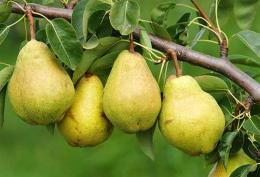
One of the most common garden trees is pear. It can often be found in the gardens of private households. And its taste is not comparable to the fruits of other garden plants.
Pears not only have an excellent taste, but are also healthy - a wonderful dietary and multivitamin product. Fruits that have reached maturity have juicy sweet pulp with an indescribable aroma.
It is believed that a strong odor indicates a high content of nutrients in fruit. In ancient China, the pear tree symbolized longevity. In addition to the wonderful taste, you need to know about the microelements and vitamins contained in fruits and what benefits they can bring to the body.
Content
A little history of the plant
First mentions of pears date back to the prehistoric period. There is no exact date when exactly people began to use this fruit as a food product. Based on the statements of historical sources, we can conclude that the pear has existed for almost three thousand years. Its presence has been detected in Switzerland and Italy. Homer described the fruits of the pear tree in his immortal poem The Odyssey.
In ancient times, the Persians and Romans knew how to breed and grow pear trees. Thanks to them, the plant and its fruits became famous on the European continent.
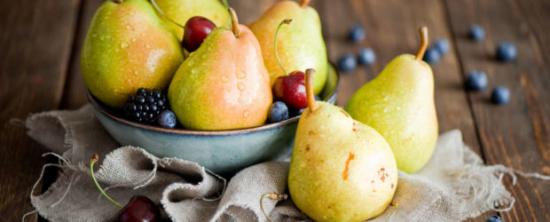
The first information about this plant in Russia dates back to the period of history when Ivan the Terrible reigned.
Useful composition
Often, when we bite off a piece of juicy pulp, we think: what vitamins are included in the pear?
Answering this question, I would like to list the vitamins present in fruits.
And so, when we eat pears, vitamins enter the body:
- A,
- Groups B – B1, B2, B5, B6, B9,
- WITH,
- E.
As you can see, the fruit contains a wide range of vitamins.
This raises a logical question: what vitamins are in pear contains more? Naturally, the amount of vitamin content is different for each of them. The first place is occupied by vitamin C. Its amount in 100 grams of the product is 5 milligrams!
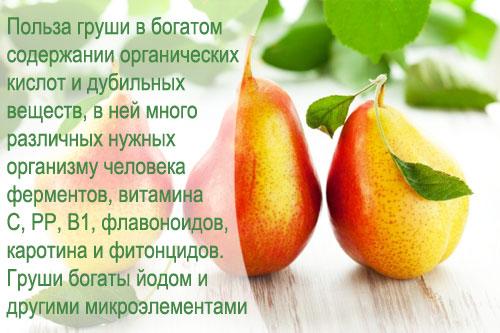
The second place is occupied by vitamin E - 0.4 milligrams, and in third place is B5 - 0.05 milligrams.
The next question immediately arises: what benefits do the vitamins contained in the pear provide to the body?
Let's look at why they are useful:
- A – retinol is a powerful antioxidant, helps improve immunity, is necessary for hair and nail growth, improves twilight vision, accelerates the processes of phagocytosis;
- B1 - thiamine - a vitamin of pep - necessary for the production of neurotransmitters, supports the health of the heart and internal organs;
- B2 – riboflavin – is necessary for the formation of red blood cells, new nerve cells and connections between them, and the absorption of iron;
- B5 – pantothenic acid – promotes the absorption of proteins, fats and carbohydrates;
- B6 – pyridoxine – is indispensable for ensuring high-quality protein metabolism, the production of hydrochloric acid, the synthesis of hormones, regulates cholesterol levels, supports heart function, blood pressure, takes an active part in the production of dopamine and serotonin, is needed for the immune system and nervous system;
- B9 – folic acid – is necessary for the normal development of the fetus during pregnancy;
- C - ascorbic acid - participates in the biological processes of the body, the number of which exceeds three hundred;
- E – tocopherol – antioxidant.
Based on this, the conclusion suggests itself: due to the vitamins that are present in them - pears very useful for pregnant women.
In addition, the fruit contains trace elements - potassium, iron, phosphorus, copper, some types contain: boron, sulfur, selenium, cobalt, iodine, molybdenum, silicon, zinc.
Pears also contain sugars: glucose, sucrose, fructose. Fructose is present in the greatest quantity, which makes the fruit useful for functional disorders of the pancreas.
Beneficial features
Regular consumption of the fruits of the pear tree helps strengthen the immune system, preserve beauty and health for many years. Although pears are sweeter compared to apples – they contain less sugar.
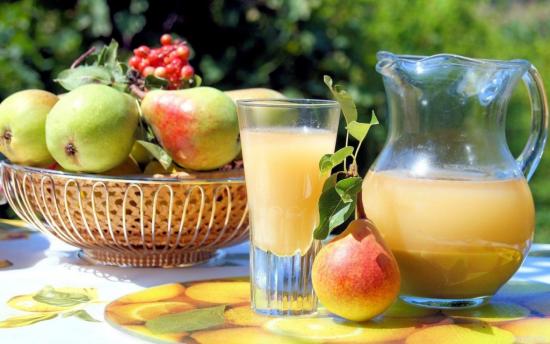
Thanks to the vitamins and microelements present in the fruit, they have choleretic, anti-inflammatory, diuretic, expectorant, astringent, antipyretic and strengthening properties.
Helps normalize digestion and increase the secretory function of the stomach.
Pears will be useful for:
- inflammation of the bladder;
- obesity;
- gallbladder pathologies;
- sleep disorders;
- kidney diseases;
- headaches;
- diabetes mellitus;
- cold;
- high cholesterol levels;
- liver failure;
- diarrhea.
Pears can be eaten as a preventive measure against gastritis. They are able to stabilize the heart rhythm, stimulate blood circulation, and strengthen the cardiovascular system.
The fiber included in the composition reduces the content of bad cholesterol, promotes the elimination of toxins, heavy metal salts, and stabilizes the functioning of the pancreas.
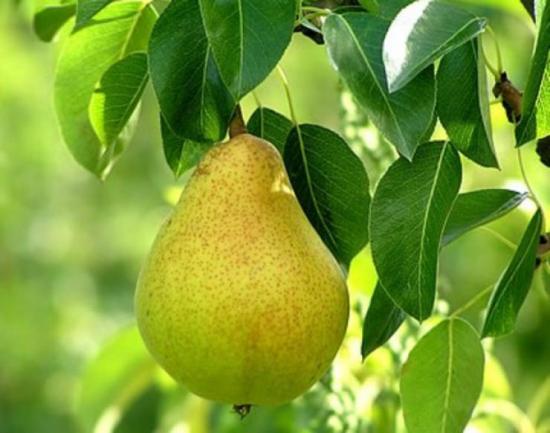
Contraindications
To all lovers pears you need to be aware of the consequences that may result from their incorrect use. It is highly undesirable to eat fruits on an empty stomach, because the fiber they contain irritates the stomach lining.
It is better to eat pears half an hour after eating. You should not drink pears with water - this can cause intestinal upset. Combining pears with meat can harm the body.
Elderly people should avoid eating tart varieties. They are poorly digestible. In this case, it is better to bake or boil the fruit.
Let's watch a video about the beneficial properties of pears:

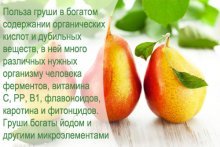


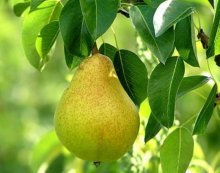
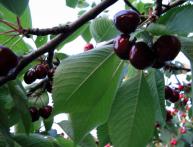
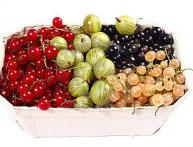

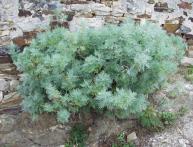
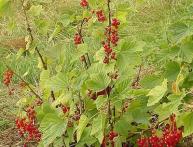
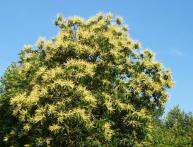


Comments
We love pear trees very much and there are two trees growing on the plot. Varieties Lada and Chizhevsky. They must be planted together. The taste is amazing. A very healthy fruit. I advise everyone to plant it. The excess can be dried into dried fruit for the winter.
I also love pear. I remember when I was a child, my grandmother had a huge pear tree that bore fruit every year: there was enough for everyone to eat, and they treated everyone, and dried it for compote. A very healthy and tasty fruit.
When I was pregnant, I often went to visit my grandmother in the village. She was a former gynecologist and fed me pears from the garden. In the end, I didn’t take any vitamins. The child was born healthy.
Now I have already planted a pear tree in my dacha. This year I am waiting for the first harvest.
I remember when I was sick as a child, my pediatrician constantly told me to eat more fruit. Mom often bought pears. So I developed a love for this fruit since childhood.
Dear anttipeltomaa! A pear is a storehouse of vitamins, just like an apple, of course. And these fruits are useful for both children and adults. Make it a rule to eat one apple or one pear a day.